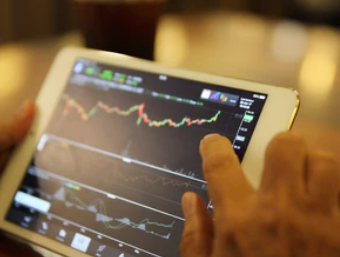
Aria Thomas
Feb 24, 2023 11:21

Asian markets heaved a sigh of relief on Friday after the incoming head of Japan's central bank allayed concerns of an early end to ultra-loose monetary policy, which pushed global bond yields lower.
Kazuo Ueda, who will succeed Haruhiko Kuroda as governor of the Bank of Japan (BOJ) in April, began a three-hour speech to parliament at 9:30 a.m. (00:30 GMT), providing markets with their first look at how the newly constituted central bank might navigate an exit from ultra-low interest rates.
Ueda has pledged to maintain ultra-loose monetary policy because inflation has yet to meet the central bank's 2% target sustainably and steadily, and there was little indication that he would soon unwind the BOJ's yield curve control policy (YCC).
"There have been strong hopes that Ueda will bring a hawkish slant to the BOJ, but his confirmation speech indicates otherwise," said Matt Simpson, senior market analyst at City Index.
Ueda's confirmation hearing in the lower house occurs as markets renew their assault on YCC and place wagers on a near-term increase in interest rates.
The yield on Japan's five-year government bonds decreased to 0.235% from 0.240% at the previous market close. Due to a lack of liquidity, ten-year bonds did not trade early on Friday, but bond futures advanced.
The Nikkei stock index increased by 1%.
The yen remained volatile. It reversed an early rise to trade at 134.71 per dollar, essentially unchanged.
Sean Callow, senior currency strategist at Westpac, stated, "Overall, Ueda is working hard to present himself as delivering continuity - at least initially." "Now is not the moment for him to implement his own policies; that is not why the government chose him."
Japan's annual core consumer inflation reached a new 41-year high of 4.2% in January, putting pressure on the central bank to wind down its vast stimulus program.
In other markets, equities were mixed. MSCI's broadest index of Asia-Pacific equities excluding Japan fell 0.2% and is on track for a 1.5% weekly decline.
Chinese blue chips and Hong Kong's Hang Seng Index fell 0.4% and 0.9%, respectively, while Australia's resource-rich stocks rose 0.2%.
The Dow Jones Industrial Average, the S&P 500, and the Nasdaq Composite all ended Thursday in positive territory, with the Dow Jones Industrial Average gaining 0.33%, the S&P 500 gaining 0.53%, and the Nasdaq Composite gaining 0.7%.
Investors anticipated the publication of the Federal Reserve's preferred inflation measure, the personal consumption expenditures (PCE) price index for January on Friday. The index is anticipated to rise 4.3% annually, compared to 4.4% the previous month.
Overnight, robust data, including an unexpected decline in new unemployment claims and a revised increase in the PCE price index for the fourth quarter, indicated some economic strength.
The dollar index, which compares the safe-haven dollar to six other currencies, was hovering at 104.63, close to a seven-week high of 104.78.
On Friday, Treasury yields declined marginally. The yield on benchmark 10-year government bonds fell as low as 3.8590 percent, down from the previous close of 3.8810 percent.
The yield on two-year bonds hovered at 4.6810 percent, compared to the previous close of 4.6930 percent.
Brent crude futures rose 0.6% to $82.71 and U.S. West Texas Intermediate (WTI) crude rose 0.6% to $75.90 on the energy market.
Gold was marginally greater. The spot price of gold was $1825.13 per ounce.


Feb 24, 2023 11:34